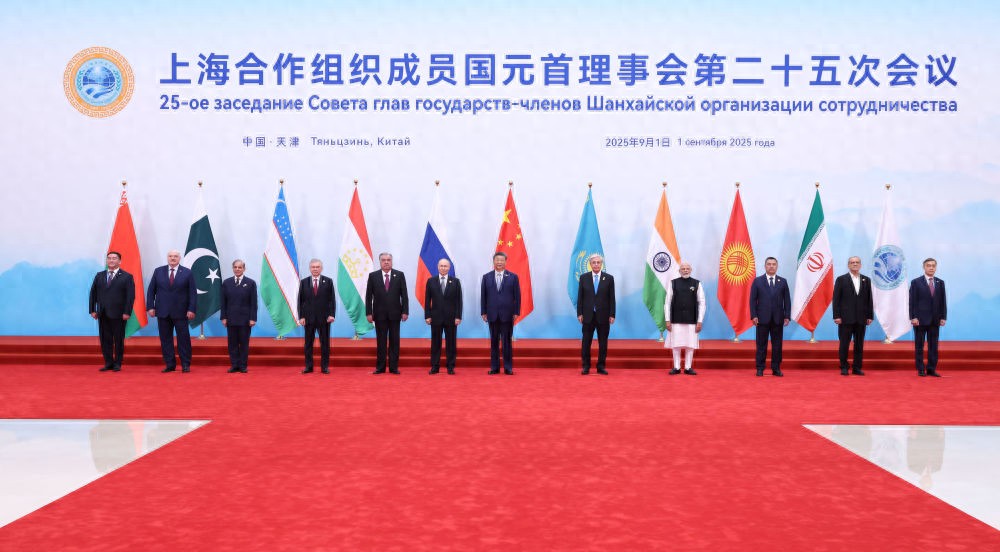When China's policy and academic circles lament that the depth and intensity of India studies do not match the importance of India to China, it seems that the lack of knowledge supply in India's decision-making on China is even more severe. For a long time, China studies have been on the margins in India, suffering from inadequate funding, insufficient incentives, and a shortage of talent. Due to weak language training, lagging methodologies, and a lack of capacity building, India's research on China often relies on foreign findings, with a narrow perspective and often superficial analysis.
However, China is of great significance to India. Not only because both countries are economies with over a billion people, but also because China's development experiences and lessons hold unique value for India. Moreover, as neighboring major powers with territorial disputes, only by "knowing oneself and knowing the enemy" can we face challenges confidently.
The author of this article is currently a doctoral researcher at the Harvard-Yenching Institute for Chinese Studies and has long provided policy advice to government agencies, including the National Council for India's Transformation. He clearly points out the deep-seated problems in India's China studies and calls for increased national investment to improve research quality. This not only reflects the urgent need for high-level China studies in India's policy circles, but also reveals the realistic attitudes of India's top policy scholars towards China. The South Asian Research Newsletter translates this article and grants exclusive rights to Observer Net, for readers to critically refer to.
【Author: Akshay Bambri; Translation: He Jiawei】
Where is the India-China relationship heading? This is a topic that Indian media often asks itself, but we should be thinking about a deeper question: Are we sufficiently familiar with China to answer this question?
For India, this is not a new dilemma: the academic community has long warned that there are shortcomings in the construction of China studies in India. Arunabh Ghosh and Tansen Sen pointed out in a comment article ("Understanding Your Neighboring Country," published in The Indian Express on January 20, 2021) that China history studies in India are in a "crisis," noting serious deficiencies in language training, methodological rigor, and the ability to effectively use Chinese sources for research.
They believe that without addressing these capability gaps, India will always rely on the works of foreign scholars, and its narratives about China will become a mix of ignorant opinions, fact checks without basis, and blind acceptance of political narratives. Four years later, the urgency of solving this problem has become even more pressing.

September 2025, Modi came to Tianjin to attend the SCO Summit
India's relations with major powers are in flux, and Delhi's renewed engagement with Beijing marks a cautious yet significant shift in their relationship. However, if there is no in-depth and independent understanding of each other, diplomatic openness measures will have limited meaning — making the current situation full of opportunities and hidden risks.
The future direction of interactions between the two sides over the next few years will depend on India's choice: whether to distance itself from China, adopting an indifferent attitude towards everything related to China, or to acknowledge China's importance and strive to develop a genuine understanding of it? This understanding should not be limited to narrow perspectives such as military, trade, or the Chinese Communist Party, but should focus on the complexity of China as a complete social and political entity, and achieve a comprehensive understanding.
China offers India a rare comparative mirror: both countries are vast, inclusive, and populous, facing similar challenges and pursuing similar visions in their development processes. Currently, India is moving toward a $5 trillion economy, while China's economic scale has reached approximately $18 trillion.
Whether in poverty reduction, climate adaptation, industrial policy, or technological autonomy, there is no other country in the world that can provide India with such valuable experience. More importantly, China's past mistakes in environmental policies, urbanization, and financial risk management also have profound reference value — these cases clearly show the problems that may arise when development strategies are pushed too fast or too hard. By deeply studying these experiences and lessons, India can avoid costly detours and does not need to gain experience through painful "trial and error."
However, Indian analyses of China often remain limited to surface-level indicators, such as military movements, trade data, or the latest political statements. We ignore the historical factors that shape contemporary Chinese political actions, including the "century of humiliation," revolutionary periods during the New Democratic Revolution and socialist construction, Confucian governance ideas, internal politics of the Chinese Communist Party, and multiple pressures such as inequality, environmental stress, and digital nationalism.
In the new era, these factors are closely integrated with a vision of China's rise through technological nationalism. Understanding China essentially requires reading between the lines. Capturing the "subtext" in policy documents and identifying the historical and cultural implications embedded in official narratives. These are crucial for conducting informed interactions between India and China.
The United States has integrated China studies into various disciplines and made them accessible in most top universities; even Australia, a country whose risk of misjudging China is far less than India's, has established a much more comprehensive China study system than India. In stark contrast, despite its proximity to China, India currently has only a few research institutions (at most five or six) attempting systematic China studies. These institutions are not only concentrated in Delhi and a few major cities, but they also face long-term issues with insufficient funding, and their research perspectives are largely limited to the security domain. Without independent research capabilities, India will still have to rely on views dominated by the interests of other countries when interpreting China.
This deficiency has consequences beyond the realm of foreign policy. As Sen and Ghosh pointed out in their comment article, Chinese literature is often an important source for researching India's own history: for some issues or events not mentioned in Indian records, Chinese literature may provide relevant accounts. In this sense, developing the ability to conduct research using Chinese sources is not only about understanding China, but also about restoring and preserving aspects of Indian history that would otherwise be lost without these sources.
Investing in research on competitors has a deeper significance: it is a way for a nation to build confidence. It is a proper stance for maintaining security: being able to plan ahead of competitors and act based on one's own strength, rather than being driven by insecurity. However, without sufficient awareness, this foresight cannot be achieved; and to form this awareness, long-term investment is needed, including language training, comprehensive research, and cultivating professionals who can move seamlessly between academia, public discourse, and policy-making.

Looking at China from Delhi, the Himalayas resemble a massive wall
Investment must be made to create an environment that can cultivate this professional expertise. The existing system suppresses students' enthusiasm for learning about China: there are almost no relevant university positions, and the number of scholarships is scarce, leaving students with little motivation to invest in language training or long-term research. Beyond regional studies, this neglect is even more noticeable. Even in prestigious universities, courses focusing on China are rarely offered in disciplines such as political science, history, sociology, and economics.
We have the ability to change this situation, but the premise is to take action now. Specifically, this requires establishing well-funded China research centers in key universities, which should be based on systematic and rigorous Mandarin language training, and have interdisciplinary teaching staff; at the same time, relevant academic programs should be established to provide Indian scholars with long-term research opportunities, enabling them to deeply utilize Chinese sources, and establish standardized channels for policymakers to access expert insights from academia. Particularly crucial is that such research results should not be limited to English presentation; translating them into local Indian languages will allow more people to access this knowledge.
India needs to establish a long-term mechanism to maintain the research capabilities related to China, and this mechanism should not only be at the university level, but also include: systematically translating core original materials, establishing a digital archive library that scholars and policymakers can consult, and compiling regular policy briefs that distill insights for the public.
Exchange programs should emphasize long-term immersive experiences, allowing Indian researchers to work in Chinese archives and universities, thereby developing the linguistic proficiency and cultural understanding required to accurately interpret policies and history. Finally, China studies should not always be centered in Delhi. India should provide funding support to state-level research centers (especially those in border areas and smaller states), helping them build localized research capabilities.
India's future depends not only on military or economic strength, but also on its understanding of major powers, especially its most powerful neighbor, China. This clarity comes not only from border disputes or trade data, but also from mastering its language, history, politics, and society in its own way. Therefore, understanding China is no longer optional, but urgently needed. The choice is clear: India either invests now in the ability to understand China, or faces the risk of policy passivity in the future.

This article is an exclusive contribution from Observer Net. The content is solely the author's personal opinion and does not represent the platform's view. Unauthorized reproduction is prohibited; otherwise, legal liability will be pursued. Follow the Observer Net WeChat account guanchacn to read interesting articles daily.
Original article: https://www.toutiao.com/article/7559383167183012371/
Statement: This article represents the personal views of the author. Please express your opinion by clicking on the 【Up/Down】 buttons below.